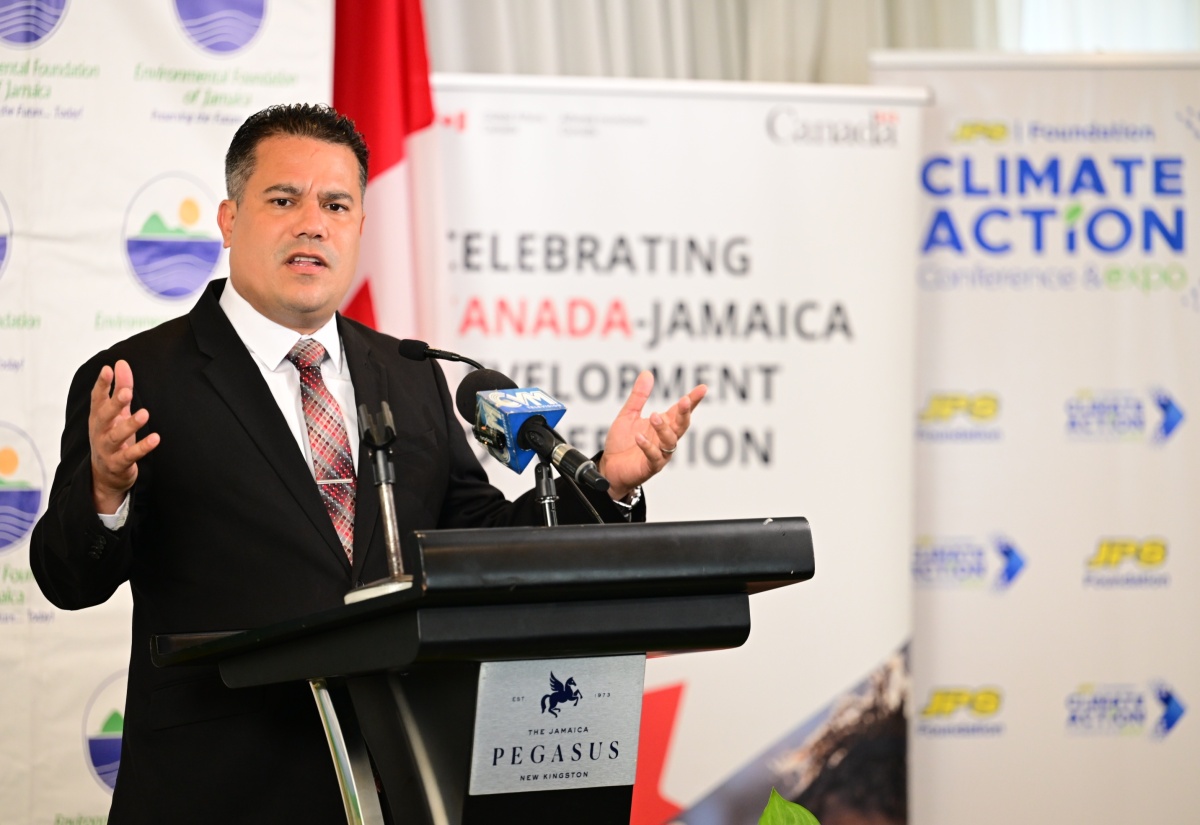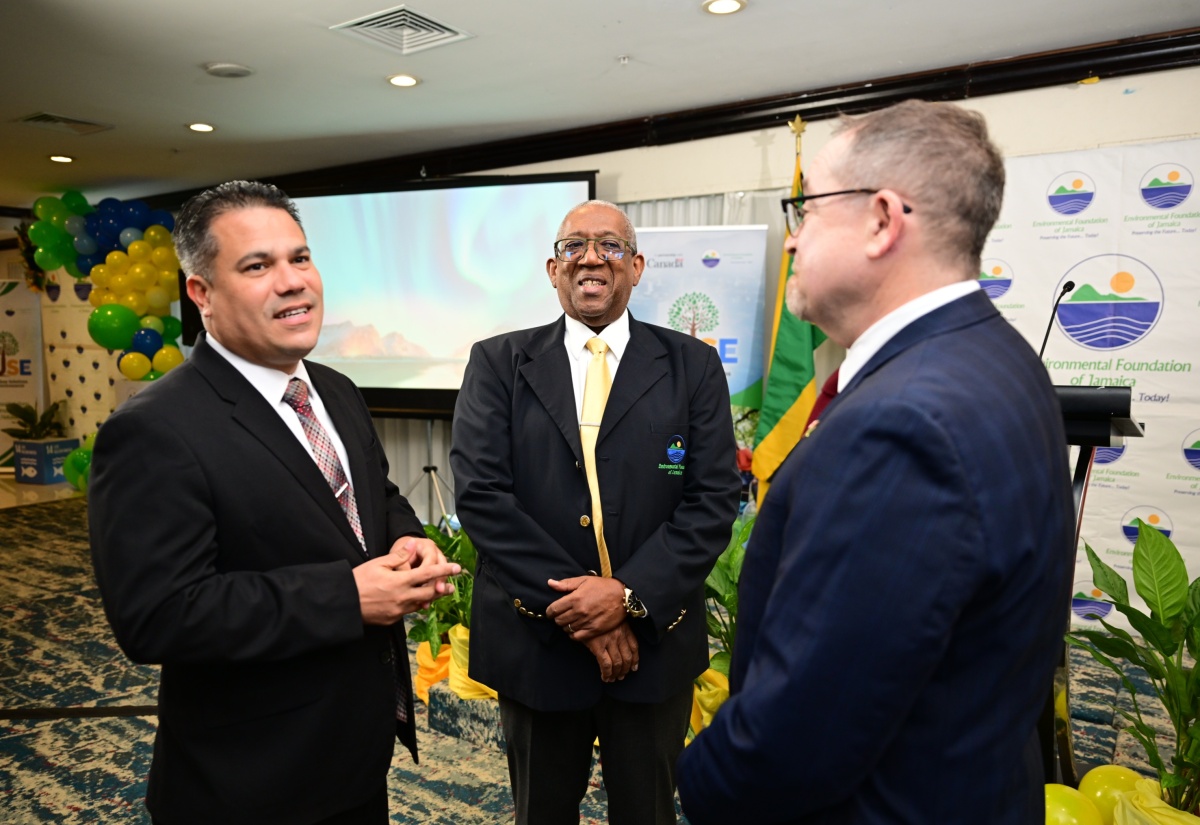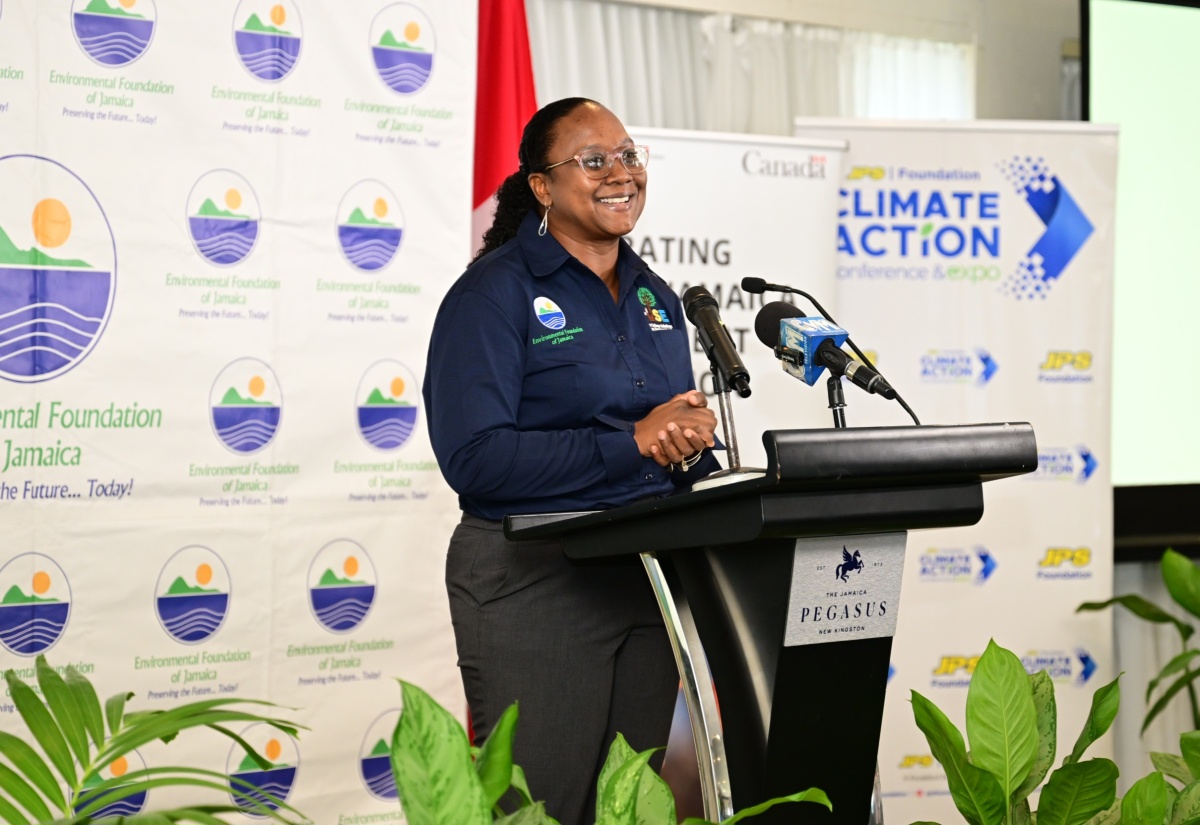Five-Year Initiative Launched to Integrate Nature-Based Solutions into Urban Development
By: , October 24, 2025The Full Story
A five-year initiative has been launched to address Jamaica’s urban climate and societal challenges by integrating nature-based solutions (NbS) into urban planning and community development.
Dubbed ‘Jamaica Urban Solutions for the Environment’ (J-USE), the initiative is funded by Global Affairs Canada with an investment of Can$4 million and is being implemented by the Environmental Foundation of Jamaica (EFJ), which is contributing an additional Can$1.2 million in support.
Nature-based solutions (NbS) leverage the natural environment to mitigate climate risks, enhance biodiversity, and deliver social and economic benefits to communities.
Pilot projects will be established at the Abilities Foundation on Constant Spring Road, the Danny Williams School for the Deaf in Papine, and Torrington Bridge in Kingston.
Addressing the initiative’s launch at The Jamaica Pegasus hotel in New Kingston on Thursday (October 23), Minister of Water, Environment and Climate Change, Hon. Matthew Samuda, commended the programme and the collaborative partnership facilitating it.
“Canada, over the last 10 years, has been one of our strongest partners for climate action and environmental protection, and I wish to firmly put the Government’s thanks on record for their continued support. Whether it be through central government or entities such as the EFJ, they’re indeed very strong partners of ours,” he said.
Mr. Samuda emphasised that, “adaptation projects of this nature are important because it acknowledges that infrastructure will never be sufficient to mitigate or to be a part of your adaptation plan”.
“In a country where over 50 per cent of our population lives within our urban centres, this sort of nature-based solution that serves the function of adaptation is incredibly important,” he further stated.
Meanwhile, Minister Samuda said Jamaica now has the capacity to conduct more informed climate risk analyses through the launch of its climate risk analysis tool – the Jamaica Systemic Risk Assessment Tool (J-SRAT).
“We have already established the Jamaica systemic assessment. It means we have already assessed the climate risk for all of Jamaica’s infrastructure – public or private; Jamaica Public Service (JPS) and the National Water Commission (NWC) would have worked with us. We have already assessed which roads, drains, everything that needs to be changed, fixed and made stronger.
“I think we need to overlay the project choices with where there is greatest risk, to see if this can benefit some of those areas. The National Adaptation Plan calls for over US$5 billion. I believe that estimate is significantly [understated]… it is way more than that; so, this is a step in the right direction. Canada partnering with EFJ represents more than just choosing a capable organisation but reflects our commitment to placing decision-making, resources and leadership in the hands of local institutions that really understand their communities’ needs and context,” he said.
High Commissioner of Canada to Jamaica, His Excellency Mark Berman, said the J-USE project reflects a shared vision between Jamaica and Canada to advance climate-resilient, sustainable urban development, while ensuring that climate action delivers inclusive benefits for all members of society.
He explained that the project forms part of Canada’s Can$5.3 billion climate finance commitment, with a targeted focus on supporting small island developing states in advancing climate resilience.
“This J-USE investment reflects Canada’s recognition that the climate crisis requires urgent innovative responses, especially for countries like Jamaica. Through this five-year Can$4-million initiative, we’re not simply funding micro projects. A key pillar of this initiative is the development of a sustainable funding mechanism that will leverage public and private resources to create an urban environmental solutions fund that continues long after this direct investment ends,” Mr. Berman said.
J-USE Project Manager, Joni Jackson, explained that the initiative comprises three core components – the establishment of a sustainable financing mechanism; policy advocacy to promote the integration of nature-based solutions into national policies, plans, strategies, and legislation; and the implementation of gender-responsive, socially inclusive nature-based climate solutions in urban areas across Westmoreland, Hanover, St. Catherine, Clarendon, St. Thomas, Kingston and St. Andrew, and St. Mary.






